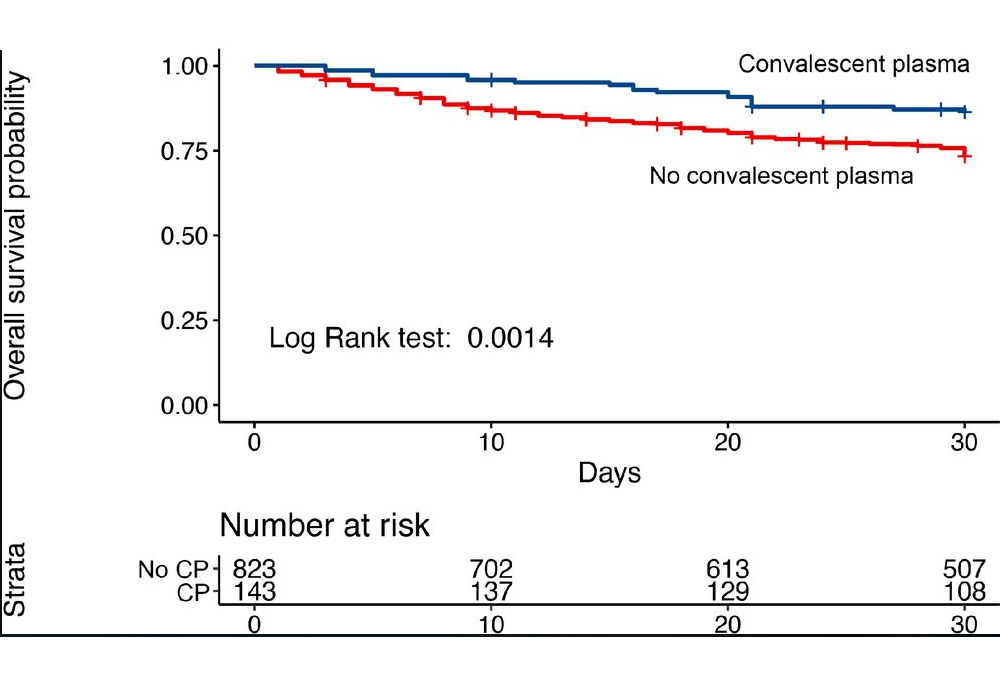Earlier this month, results of a new retrospective study were published on MedRxiv, a medical preprint server. This study investigated the influence of the administration of convalescent plasma to COVID-19 patients with a haematological malignancy.1 The study was executed by the COVID-19 and Cancer Consortium (CCC19) and is yet to be peer reviewed. Results were already published due to the urgency for information on COVID-19 treatments.
Earlier on, several case reports pointed towards a possible survival benefit of convalescent plasma for patients with an immunodeficiency who were infected with corona.2 However, the current study of dr. Michael Thompson is the first retrospective study to directly compare haematological patients that did or did not receive plasma.1 The researchers studied the 30-day mortality of hospitalized adults from 71 different medical centres. The study included 966 patients total, of which 143 (14,8%) received blood plasma during their hospitalisation, from a donor who had recovered from a Sars-Cov2-infection.
After a median follow-up period of 30 days (range: 21-90 days), 223 patients (23,1%) passed away during the first 30 days after COVID-19 diagnosis. Overall survival was significantly higher in patients who received plasma (124/143 survived, 87,7%) than in patients who did not (619/823 survived, 73,2%). This resulted in a hazard ratio for 30-day mortality of 0.60 (95% CI: 0,37-0,97; p=0.033).

This effect was even more prominent in the 338 patients that were admitted to the intensive care (aHR [95% CI]: 0.30 [0.16-0.56]). Patients that required mechanical ventilation also passed away significantly less often when receiving plasma (HR [95% CI]: 0.23 [0.10-0.50]).
CONCLUSION
This study showed that the administration of convalescent plasma to patients with a haematological malignancy and COVID-19 infection leads to higher survival chances. This effect was visible in all patients, but more prominent in patients that were admitted to the ICU and who needed mechanical ventilation. However, this publication has not been peer-reviewed yet, so caution with the acquired results is recommended.
References